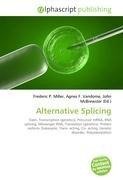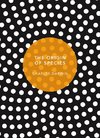
Alternative Splicing
High Quality Content by WIKIPEDIA articles! Alternative splicing is a process by which the exons of the RNA produced by transcription of a gene (a primary gene transcript or pre-mRNA) are reconnected in multiple ways during RNA splicing. The resulting different... Viac o knihe
Produkt je dočasne nedostupný
30.80 €
bežná cena: 35.00 €
O knihe
High Quality Content by WIKIPEDIA articles! Alternative splicing is a process by which the exons of the RNA produced by transcription of a gene (a primary gene transcript or pre-mRNA) are reconnected in multiple ways during RNA splicing. The resulting different mRNAs may be translated into different protein isoforms; thus, a single gene may code for multiple proteins. Alternative splicing occurs as a normal phenomenon in eukaryotes, where it greatly increases the diversity of proteins that can be encoded by the genome; in humans, over 80% of genes are alternatively spliced. There are numerous modes of alternative splicing observed, of which the most common is exon skipping. In this mode, a particular exon may be included in mRNAs under some conditions or in particular tissues, and omitted from the mRNA in others. The production of alternatively spliced mRNAs is regulated by a system of trans-acting proteins that bind to cis-acting sites on the pre-mRNA itself. Such proteins include splicing activators that promote the usage of a particular splice site, and splicing repressors that reduce the usage of a particular site.
- Vydavateľstvo: Alphascript Publishing
- Formát: Paperback
- Jazyk:
- ISBN: 9786130243562


 Anglický jazyk
Anglický jazyk 









